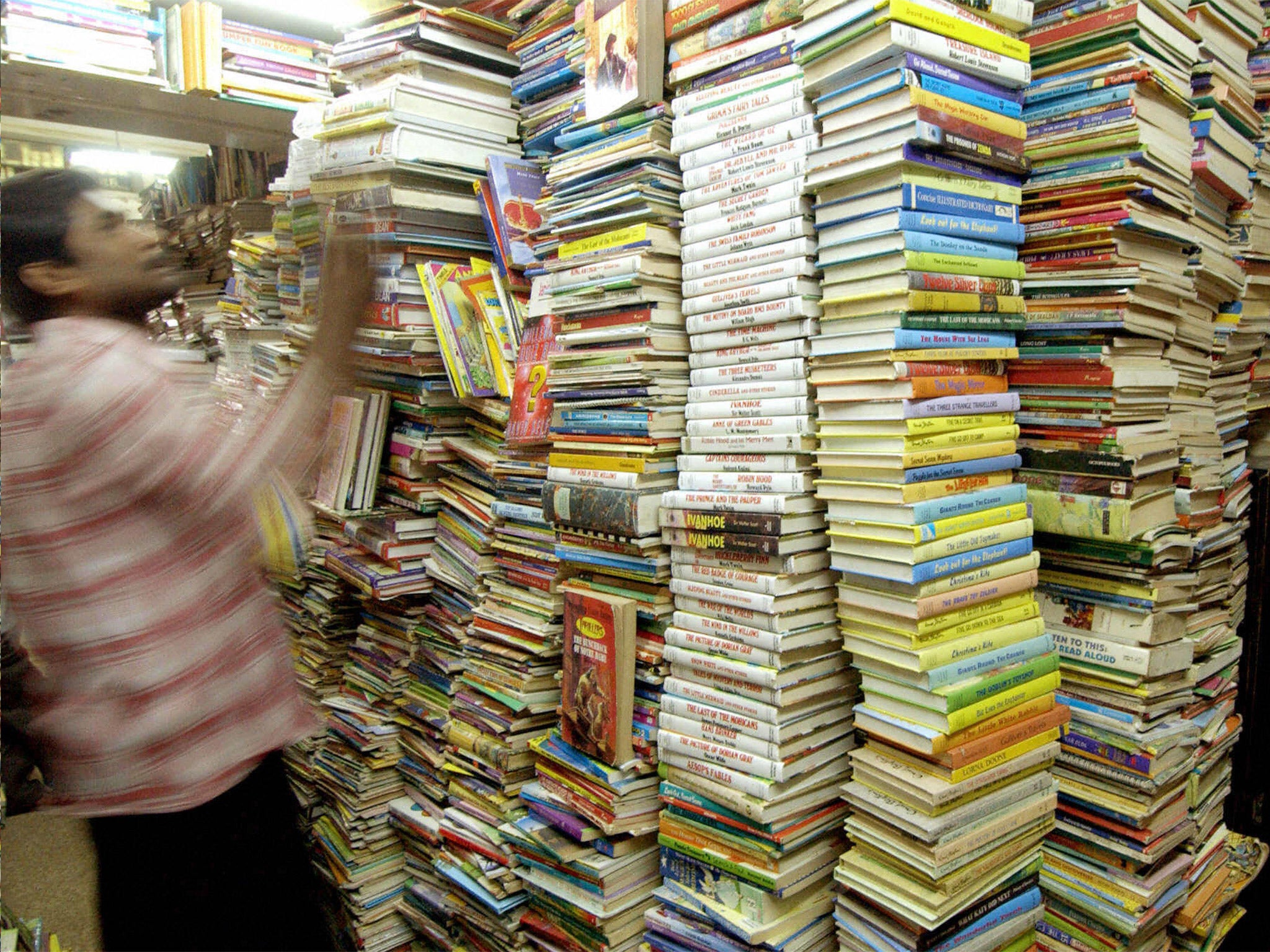Murty Library aims to publish new editions of great Indian literature from 20 languages
Five handsome volumes begin an ambitious project to share with modern readers the rich, diverse treasures of Indian literature going back two millennia

Listen to this woman speak: "The hairs on my head were once curly,/ black like the colour of bees./ Now because of old age/ they are like jute." Feature by feature, she itemises a once-gorgeous but now-dilapidated body, "like an old house, the plaster falling down". She even drags wry humour from this litany of decline: "Once, my breasts were beautiful,/ full, round, close together, high./ Now, they sag down/ like empty water bags made of leather." But no complaints, and no regrets, since "it's just as the Buddha, the speaker of truth, said".
This poet lived with other female elders in the earliest Buddhist communities of India well over 2,000 years ago. Her voice – and those of her sisters as they candidly reflect on sex, love, loss, ageing, children, grief and the quest for peace – calls out across the millennia in a poetry collection known as the Therigatha. It counts as "the first anthology of women's literature in the world", according to Charles Hallisey, its latest translator from the ancient Pali language. As Sheldon Pollock, a professor of Sanskrit and South Asian studies at Columbia University in New York, puts it when I talk to him: "This is a text that just grasps you by the throat."
Those Buddhist women can talk to us again thanks to the Murty Classical Library of India. Launched this week in London, the Murty Library eventually aims to publish new editions of great Indian literature from 20 languages, with a chronological span that stretches from the age of the Therigatha to 1800CE. Five handsome hardbacks have already appeared from the publisher, Harvard University Press.
More than 40 further titles have already been commissioned. Facing-page English translations match the original texts. The initial batch includes works written in Pali, Telugu, Old Hindi, Persian and Punjabi. Within a couple of years, digital editions should begin to complement the print. In all, the library envisages at least 500 volumes, over the next 100 years.
The library owes its existence to a $5.2m (£3.4m) endowment from Dr Rohan Murty, a Harvard University computer scientist, whose father co-founded the Indian software and computer-services giant Infosys . Speaking from Delhi, Murty salutes his model: the celebrated Loeb Classical Library of Greek and Latin texts, also a bilingual series, which began in 1911 and has passed its 500th title. "My aspiration was to do the same for ancient Indian literature."
Murty began to explore the classical traditions of India as an enriching sideline while he studied for his doctorate at Harvard. At school in India, he had learnt more about Tolstoy, Shakespeare or Wordsworth than the innumerable masterworks of India's cultures. As for traffic in the other direction, some elements of ancient Indian writing have had a deep impact in the modern West, whether the Vedic scriptures or parts of the Ramayana and Mahabharata epics, such as the "Bhagavad Gita".
However, while the West's idea of the "Indian classic" has rested on a narrow canon of works in the ancient Sanskrit tongue, the Murty Library will cast its net much wider. As the general editor, Sheldon Pollock intends to invite works from every major language and region, "from Afghanistan to Burma, and from Nepal to Sri Lanka", into the Murty marquee.
As well as the Buddhist women of the Therigatha, the opening quintet includes Allasani Peddana's The Story of Manu: a sumptuous, multi-layered creation epic and manual of kingship, written in the Telugu language at the time that Henry VIII ruled England. From the period of our Elizabeth I come two other volumes: a sensual collection of lyrics in Old Hindi by Surdas that entwine erotic rhapsody with divine enchantment, and the first part of a history of the great Mughal emperor Akbar written in Persian by his friend Abu'l-Fazl.
Abu'l-Fazl defended Akbar's tolerant, pluralistic vision of Islam against fundamentalists. The same quarrel surfaces in the Murty volume that, along with the Therigatha, may speak most directly to modern readers. This is a collection of Sufi lyrics by Bulleh Shah, an 18th-century Punjabi poet. "I am not a Hindu, nor a Muslim," runs one typically free-spirited poem. "I have forsaken pride and become unsullied./ I am not a Sunni, nor a Shia. I have adopted the path of peace towards all."
Sheldon Pollock believes that the Indian classics can not only bring us face to face with timeless humanity but, sometimes, take us out of ourselves with their mind-bending strangeness. He wants readers to discover new frontiers of human nature on the Murty shelf: our "un-self or non-self". Just now, however, Bulleh Shah hits very close to home, with his teasing denial of all dogmatism, pious and impious alike: "I am not a believer in the mosques, nor do I follow the rites of unbelief. I am not among the pure or the polluted. I am not Moses or Pharaoh." Read him and, as with the Buddhist "nuns" or the divinely sensual lyrics of Surdas, the veil of years may simply fall away. As Rohan Murty says, "We have already made a time machine. Books are our time machine."
Join our commenting forum
Join thought-provoking conversations, follow other Independent readers and see their replies
Comments